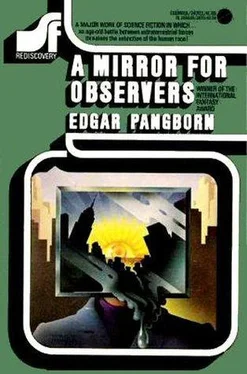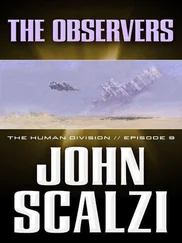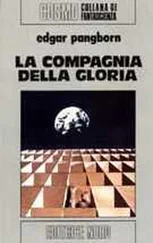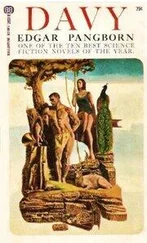“I’m — going away for the week end.”
I wrote my address on a notebook leaf and tore it out. “Keep this somewhere, Abraham.” He reached for it, red-faced, miserable at his refusal but not changing it. The voices of Namir and Hodding were blurred noise beyond the door. I think Abraham watched me as I went out. I don’t know….
New York Friday midnight, March 10
I wrote that last entry here in my apartment only a few hours ago. I feel so changed tonight that the day seems a long time past. When I finished writing this afternoon I telephoned Sharon Brand. I told her nothing of Abraham: she didn’t ask, unless some of her silences were questions. I invited myself to call on her and Sophia Wilks in the evening. They live in Brooklyn. Yes, I remember you did too for a few months, Drozma; 30,883, wasn’t it — the year the bridge was opened to traffic? It’s still in use, parts of it a hundred years old. (Don’t know yet how the Dodgers are shaping up this spring.) I needed Sharon, if only to remind me that I don’t always blunder…. Now it is midnight, and I imagine new sounds out there, underneath the city’s murmurous quiet. They are not there: my mind is creating them because I am frightened.
Drozma, you must have often reviewed the logic of our Observers’ laws. By what right do we intrude on Abraham’s or any other life?
No right at all, I should say, since “right” in this case would imply the existence of a superworldly authority dispensing privileges and prohibitions. We Salvayans are agnostics born. Having neither belief nor dogmatic disbelief in any such authority, we interfere in human affairs simply because we can; because, conceitedly or humbly, we hope to promote human good and diminish human evil, so far as we ourselves can know good and evil. How far is that?
After three and a half centuries I have found, for an empirical ethics, no better starting axiom than this: cruelty and evil are virtually synonyms. Human ethical teachers have insisted over the ages that a cruel act is an evil act, and men on the whole endorse the doctrine no matter how repeatedly they violate it. There is inevitable revulsion against any blatant attempt to make cruelty a law of behavior. Unrecognized cruelties, cruelties generated by primitive fears or sanctified by institutional habit — these may continue for centuries; but when human nature sees Caligula in his plainest shapes it will vomit him up and sicken at the memory. Conversely, I recognize nothing as evil unless cruelty is its dominant element. Here, manifestly, human nature isn’t quite so willing to follow the logic through. To satisfy semantic order, one must distinguish between mindless cruelty and the malevolent sort. It’s a humanly evil thing if a tiger chews a man, but the tiger is impersonal as lightning or avalanche, merely getting his dinner with no malevolence involved. A butcher killing a lamb is similarly impersonal, and I think he drives a rather decent bargain, though an articulate lamb might bleat reproach at me for saying so: the lamb’s juicy little carcass in return for a sheltered, well-fed life and a death more merciful than nature is at all likely to provide. If the term “cruelty” is allowed to include the non-malevolent causes of suffering I think the axiom will stand. I notice that a massive amount of human cruelty is non-malevolent, a result of ignorance or inertia or simple bad judgment and misinterpretation of fact.
It doesn’t follow that any such mild and limited conception as kindness is synonymous with good. Men trick themselves with the illusion that good and evil are neat opposites: one of the mental short cuts that turn out to be dead-end traps. Good is a far wider and more inclusive aspect of life. I see its relation to evil as little more than the relation of coexistence. But evil nags us, obsesses us like a headache, while we take good for granted as we take health for granted until it is lost. Yet good is the drink, evil only a poison that is sometimes in the dregs: in the course of living we are likely to shake the glass — no fault of the wine. It is good to sit quiet in the sun: there is no nicely balanced opposing evil to that. Where is there any matching evil to a hearing of the G Minor Fugue? As absurd as asking, What is the opposite of a tree? Recognizing many partial ambivalences between birth and death, we overlook their partial quality and are fooled into supposing that ambivalence is exact and omnipresent. It seems to me that men and Martians will never be very wise until they carry their thinking much further beyond the sign language of deceptive and tempting pictures. I would defy anyone to measure, as in a scale, even the homely equipoise of night and day.
If I must justify my actions on the impersonal level (and I think I should), I concern myself with the life of Abraham Brown because I believe him to have potentially great insight. If I am right, he is bound to train that insight (he cannot help himself) on the more dangerous and urgent of human troubles. If he can reach maturity without disaster, with that growing insight fully grown, I don’t know why he shouldn’t aid others of his breed to hold the glass steady and throw away the dregs. His means might be any of several — artistic creation, ethical teaching, even political action; that question is secondary, I think. It is certainly not his intelligence alone that made me search nine years for him. Intelligence alone is nothing, or worse: Joseph Max is damned intelligent. Nor is it his heart, which is wounded and confused, nor is it his present self. His present self can be foolish, timid, and disagreeable, as I found out this afternoon. No: in Angelo (and in Abraham) there was and there remains a blend of intelligence, curiosity, courage, and good will. The intelligence is perplexed and tormented by the enormous complexity of life outside him and within. His curiosity and courage, reinforced by blind chance and the inevitable loneliness of the intelligent, have brought him face to face at twenty-one with more ugliness than his heart is ready to endure — he will see greater ugliness in the future, if he lives, and find that his heart is stronger than he thought. His good will is a river blocked with rubbish, but it cannot remain so: it will flow.
I suppose that, like anyone else, Abraham Brown would like to be happy now and then before he dies. I have had much happiness, and expect more. I never won it by seeking it. Long ago, when I loved and married Maja, I thought (just like a human being!) that I was engaged in the pursuit of happiness. Neither she nor I ever found it until we stopped searching; until we learned that love is no more to be possessed than sunshine and that the sun shines when it will. When she survived the difficult birth of Elmaja, we were richly happy, I remember. If one must hunt a reason for happiness, I say it was because we were living to the full extent of our natures: we had our work, our child, our companionship; the sun was high. After I lost her at the birth of our son, my next happiness came a year later, when I was playing the “Emperor” Concerto with the Old City orchestra, and found that for the first time I knew what to do with that incredible octave passage — you remember it: the rolling storm diminishes and dies away without a climax, where anyone but Beethoven would have written crescendo. I understood then (I think I understood) why he did not. My hands conveyed my understanding, and I was happy, no longer enslaved by a backward-looking grief but living as best I could — not a bad best. And so I think that if his maturing mind can guide him through the complex into the simple, if his curiosity and courage can show him the relative smallness of a reform school in Kansas City, if the river of his good will can find its channel, Abraham Brown will be happy enough, more than most. And I think, with all respect to one of the most vital of human documents, that the pursuit of happiness is an occupation of fools.
Читать дальше












